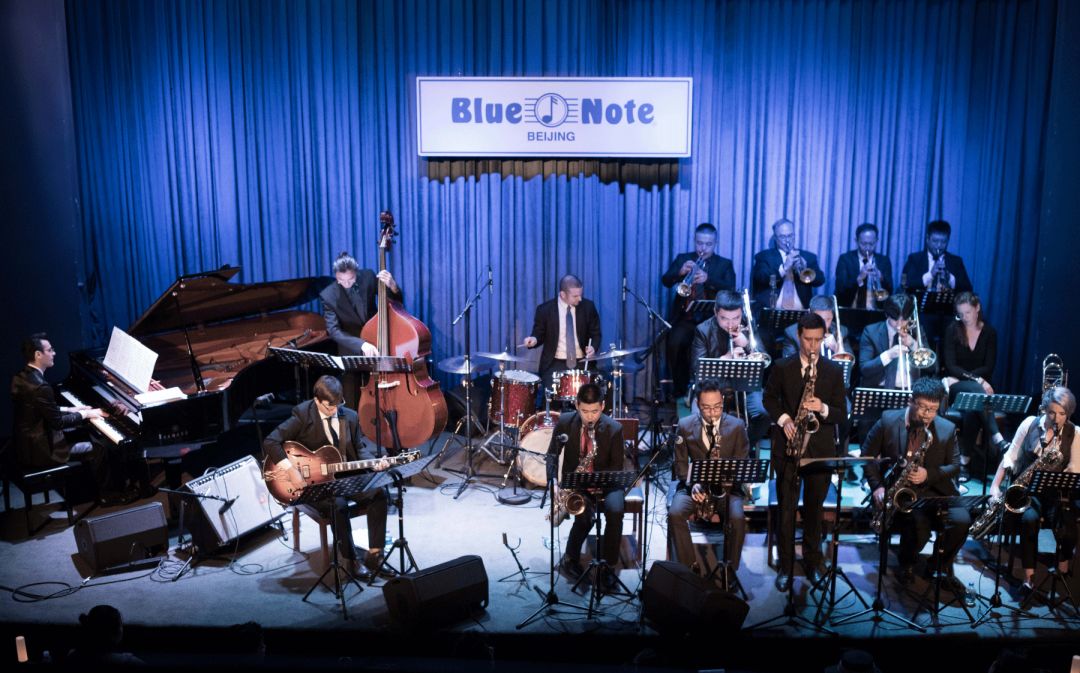Bebop, Postbop,
and the Modern Jazz Language
比波普、后波普与现代爵士语言

今年5月,Blue Note China爵士大乐队向20世纪40年代比波普时代(Bebop Era)的艺术家们致敬。他们革新了爵士乐语言中的节奏和旋律组织,使其从流行音乐提升为一种时髦的地下音乐艺术。在之后的几十年里,爵士乐语言不断演变,最显著的是在20世纪60年代动荡的美国,其在旋律及和声上变得更加抽象,并具有表现主义。Blue Note Beijing此次呈现的演出作品将展示爵士乐语言从比波普到后波普(1950至1960年代)时期的演变,其中包含爵士乐巨匠John Coltrane、Herbie Hancock、Wayne Shorter、Chick Corea等人的作品。绝大部分后波普时代的重要演出均是以小型乐队进行的,因此我们期待着通过大乐队丰富的色彩演绎这些经典作品。特此,诚邀您参加我们两晚的后波普大乐队音乐会!
In May 2019, the Blue Note China Jazz Orchestra paid tribute to the artists of the 1940s bebop era, who revolutionized the rhythmic and melodic organization of the jazz language and elevated it from popular music to a hip, underground art music. In the decades to follow, the language of jazz continued to evolve and become more abstract and expressionist with melody and harmony, most notably throughout the tumultuous decade of the 1960s in America. The Blue Note Beijing is proud to present a program of music (almost exclusively not originally written for big band) that showcases the development of jazz language from bebop to postbop from the 1950s through the 1960s, with works by jazz icons like John Coltrane, Herbie Hancock, Wayne Shorter, Chick Corea, and more. Most of the postbop era’s key performances were originally done in the small-group format, so we look forward to rendering these classic works with the rich orchestrational possibilities of the big band and hope you’ll join us for two nights of large ensemble postbop.


